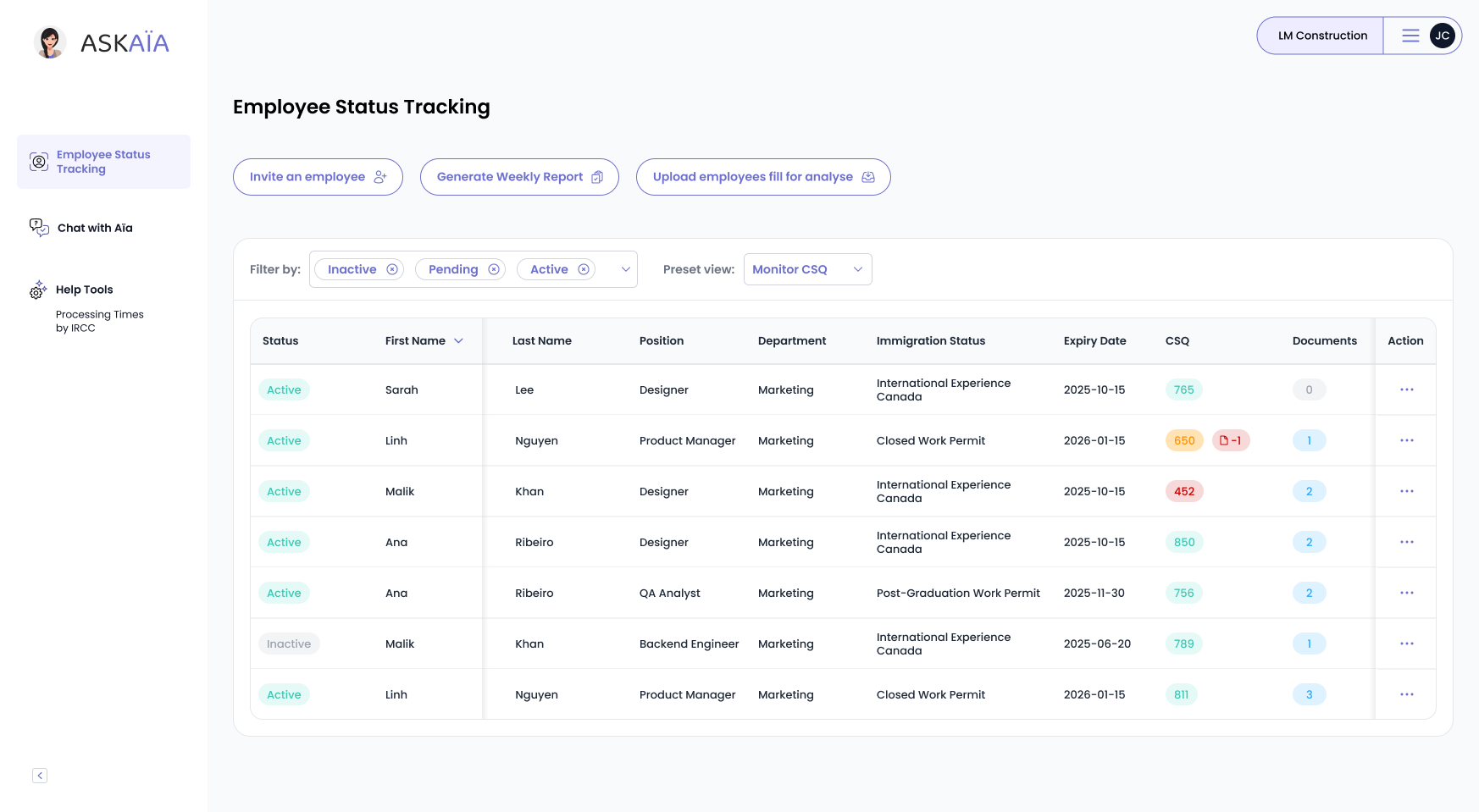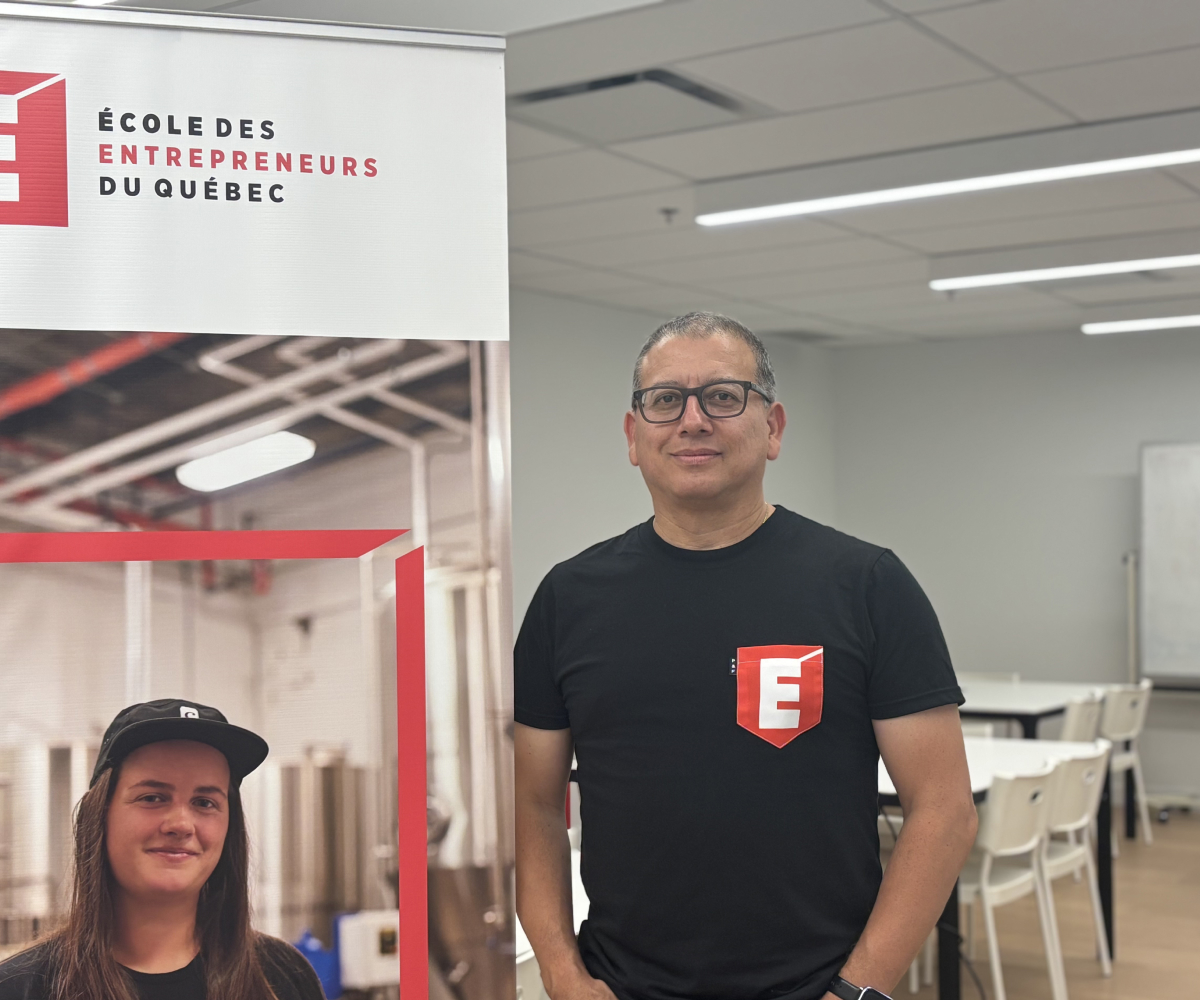Arriving in Québec with a health qualification is a crucial decision: should you invest in accrediting your diploma or start your own business from scratch? In the following lines, we will compare figures, times and challenges for you to make the best decision.
What you will find in this article
What nobody tells you when you become a paramedic
Daniel Sarmiento, a Colombian paramedic, arrived in Montreal in 2007 at the invitation of his family. As he tells us, his initial goal was to get his degree recognized; however, when he learned about the costs of the process and the requirement for advanced level French, he opted to start a small cleaning service and, over time, became a serial entrepreneur. Today he co-manages companies such as Wash a Fita Inc. (laundry services), Somos Construction (residential and commercial renovations) and El Lounge Resto-Bar, in addition to co-producing the TriBurones podcast on business and investment. Which route is better: homologation or entrepreneurship? This guide compares (with official 2025 data) the two alternatives that many newcomer professionals evaluate.
Is paramedic a regulated profession in Canada and Quebec?
Yes. Paramedic work is part of the regulated health professions across Canada, with each province setting its own licensing requirements.
- At the federal level (NOC 32101, Paramedical Occupations): it is recognized as a qualifying occupation within the Express Entry system, but authorization to practice is provincial.
- In Quebec: the practice is supervised by the Ministère de la Santé et des Services sociaux (MSSS) through the Règlement sur l'organisation et l'administration des services préhospitaliers d'urgence. To intervene in 9-1-1 you need to:
- Have completed a DEC in Soins préhospitaliers d'urgence or an endorsed bridging program.
- Pass the Programme national d'intégration clinique (PNIC).
- Register with the Registre national de la main-d'œuvre des techniciens ambulanciers.
In other provinces, requirements vary (e.g., registration with the relevant College of Paramedics).
From experience to options
Daniel's trajectory shows that the same starting point - a foreign health diploma - can bifurcate into two viable routes: getting the diploma approved or embarking on the entrepreneurial path. Based on his trajectory, we illustrate the numbers, timelines and challenges that can arise in each scenario.
Options on the table
| Key criteria | Accreditation (TAP) | Start up (cleaning/multi-services) |
| Initial investment | ≈ 8 000 $ - 12 000 $ | ≈ 5 000 $ - 25 000 $ |
| Duration | 18 - 30 months | 3 - 6 months |
| Initial income | ≈ $54 800/year ($26.34/h) | 30 - 50 $/h; margin 20-40 %; > 90 000 $/year at 2-3 years |
| Advantages | Stability, benefits, pension | Schedule control, scalability |
| Risks | 12-24 h shifts, physical effort | Cash flow, customer acquisition |
| Language | French B2 (OQLF exam) | Functional French for sales and management |
Detail of costs - Homologate
These values apply to processes in Quebec during 2025 and integrate the official fees and the academic expenses necessary to complete the accelerated DEC. They have been calculated from the CEGEP cost sheets and the fees published by the MSSS; they may vary according to the institution and academic year.
- Benchmarking $138 (MIFI).
- Accelerated DEC - ≈ $6 500.
- Resident tuition (3 semesters): ≈ 4 200 $.
- Uniforms and clinical equipment: ≈ 1 300 $.
- Books and software licenses: ≈ 1 000 $Sources: 2025 cost sheets from Cégep Ahuntsic and Collège Notre-Dame-de-Foy.
- Registration PNIC 200 $ (125 $ theory + 75 $ practice)
- Sworn translations of diplomas and minutes: ≈ 400 $ - 700 $.
- Transportation and additional clinical material for internship: ≈ 300 $ - 600 $.
- Loss of income during 80 h of unpaid internship: ≈ 800 $ - 1 500 $.
Estimated total: ≈ 8 000 $ - 12 000 $ when official fees, equipment and indirect costs are added.
Cost breakdown - Entrepreneurship
2025 estimates based on: (a) quotes from suppliers of cleaning equipment in Montréal (industrial vacuums, PPE and certified chemicals), (b) the official REQ fee for immatriculation of a sole proprietorship and (c) commercial liability policy ranges published by provincial insurers. Figures vary depending on whether you start alone or with a crew and the level of investment in digital marketing.
- Business registration $40 (REQ)
- Basic equipment - $5,000 - $15,000.
- Industrial vacuum cleaner: ≈ $1,200.
- PPE kit (gloves, masks, glasses): ≈ $400
- Certified chemicals (6 months): ≈ 600 $
- Cleaning trolley and accessories: ≈ $800 (wholesale prices 2025).
- CR insurance + marketing 2 000 $ - 5 000 $.
Why is it mandatory to take a DEC in Quebec?
To practice as a Technicien Ambulancier Paramédical (TAP) in Québec, provincial regulations require completion of a DEC in Soins préhospitaliers d'urgence (or its bridge program). This step is not merely academic; it responds to four key pillars:
- Regulatory compliance - The Règlement sur l'organisation et l'administration des services préhospitaliers d'urgence states that TAPs must come from a program recognized by the MSSS.
- Curricular equivalence - The MIFI benchmarking only determines the general academic level, but does not certify that you know clinical protocols, 9-1-1 chain of command or the drugs authorized in Quebec. The DEC fills these gaps in 16-18 months.
- Access to the PNIC - The Programme national d'intégration clinique (final theoretical/practical exam) only admits candidates with the DEC or equivalent; without it, you cannot register for the workforce registry.
- Legal and insurance coverage - Employers and insurers require the provincial credential before allowing internships or hiring personnel.
In short, the accelerated DEC is the regulatory route that aligns your training with Québec's clinical, legal and insurance standards.
Decision factors
Before making your choice, answer these key questions to identify the route that best fits your reality:
Liquidity and savings cushion.
Can you sustain housing and basic expenses for 12 months without a steady income? Keep in mind that living costs in Montreal can exceed $1,800 per month if you are not generating income yet.
Lifestyle and health
24-hour ambulance shifts can affect sleep and family life; entrepreneurship offers greater schedule control.
Proficiency in French
The clinical pathway requires passing the OQLF exam (B2 level) before practicing; entrepreneurship allows you to improve your language skills while generating income. Daniel tells us that, during his night shifts as a maintenance worker in a hospital, he took the opportunity to practice French by talking to the janitors.
Risk tolerance
Are you energized by income variability or do you prefer a stable payroll?
Purpose and motivation
Do you find it more fulfilling to care for patients or to lead teams and create jobs?
Reflect: if 3 or more of your answers favor the entrepreneurial route, entrepreneurship may resonate more with you; if not, the stability of homologation may give you greater peace of mind.
Key financial resources
| Program | What it offers | Link |
| Prêt PME MTL | Up to $50,000 at a preferential rate | https://pmemtl.com |
| STA - Soutien au Travail Autonome (Self-Employment Assistance) | Monthly allowance for 1 year | https://www.quebec.ca/entreprises-et-travailleurs-autonomes/demarrer-entreprise/aide-financiere-devenir-travailleur-autonome |
Advice from our experience
Resilience and the ability to pivot can transform a modest opportunity into multiple consolidated businesses.
- Improving your French while working or entrepreneurship opens doors and clients.
- Delegating operational tasks early allows you to focus on strategic expansion.
- Through his TriBurones podcast, Daniel continues to share experiences and learnings to support other immigrant entrepreneurs.
There is no universal path. Homologating provides security and a competitive salary; entrepreneurship offers control and growth potential. Evaluate finances, motivation and risk tolerance. Ready to design your strategy? Take a free assessment with AskAïa to identify the best immigration and career development strategy for you.
Together we will draw up a clear plan, with realistic timelines and concrete resources.
Notice
This guide is purely informative. Requirements and fees change frequently. Before sending documents or making payments, please check the details.

Let’s get your demo started
Book a demo
You May Also Like
These Related Stories

From Engineer to Entrepreneur in Québec: A Practical Guide
In Quebec, entrepreneurship is a way of socio-economic integration for foreign-trained professionals. This guide takes José's journey through this eco …

Colombians Working in Canada: LMIA Exempt Jobs You Should Know
For many Colombians, settling in Canada represents a major opportunity, but also a challenge filled with legal procedures and complex requirements. Fo …

Explore LMIA-Exempt Canadian Work Permits for 2025: Who Qualifies?
Canada's complex work permit system often deters both skilled workers and employers. The standard route, through the Labour Market Impact Assessment ( …
.jpg?width=600&height=600&name=ser-paramedico-en-quebec-2025-costos-requisitos-y-plan-b-%20(1).jpg)